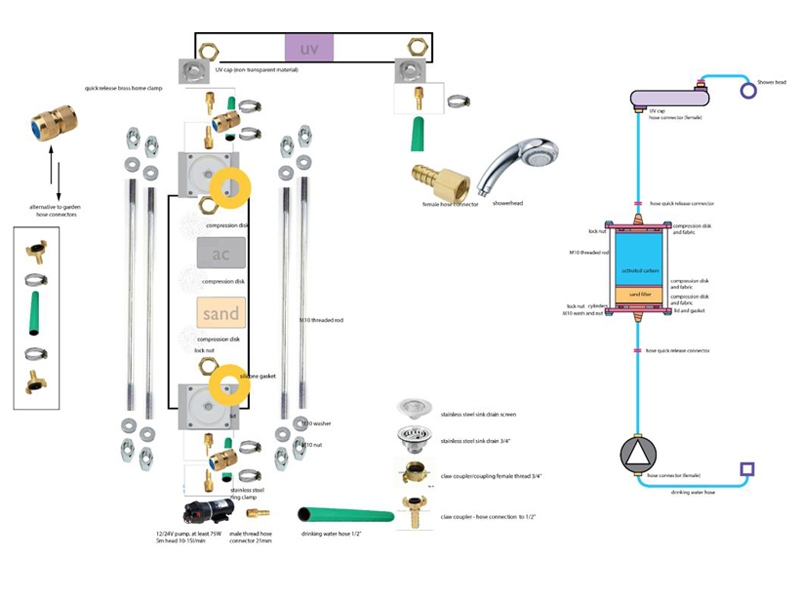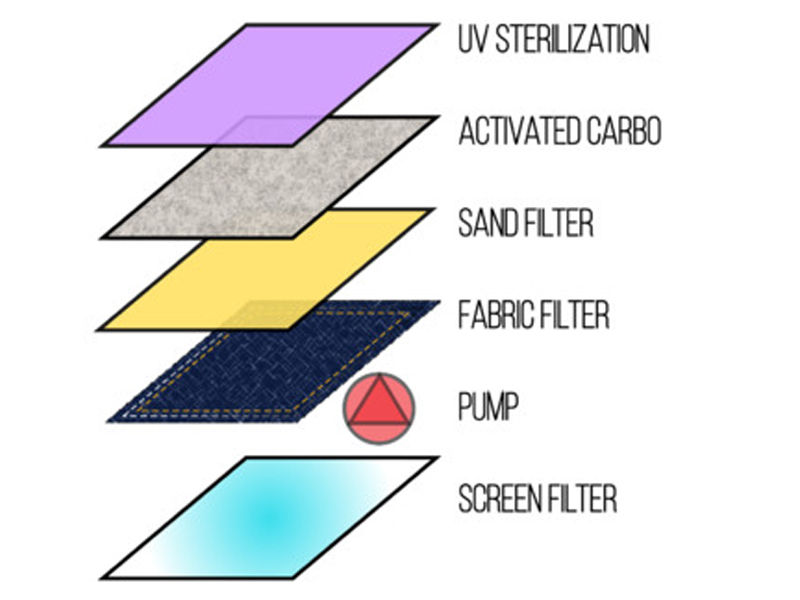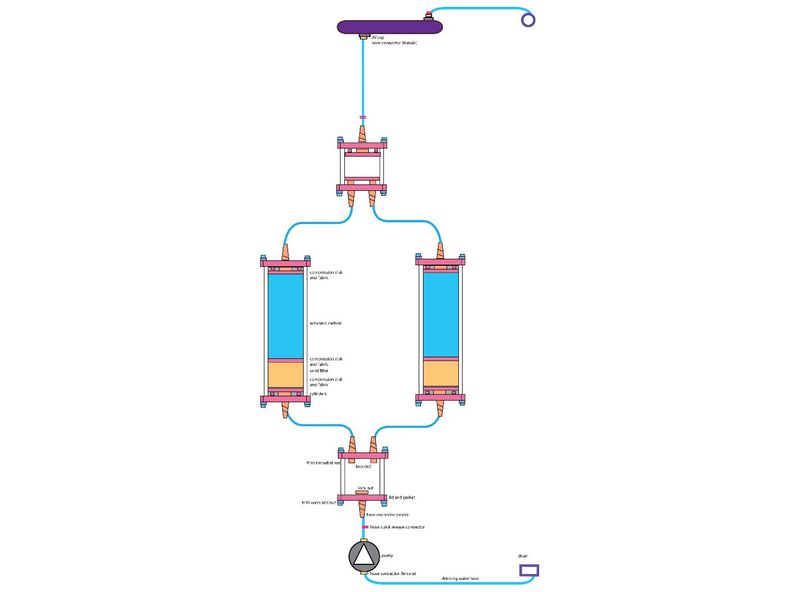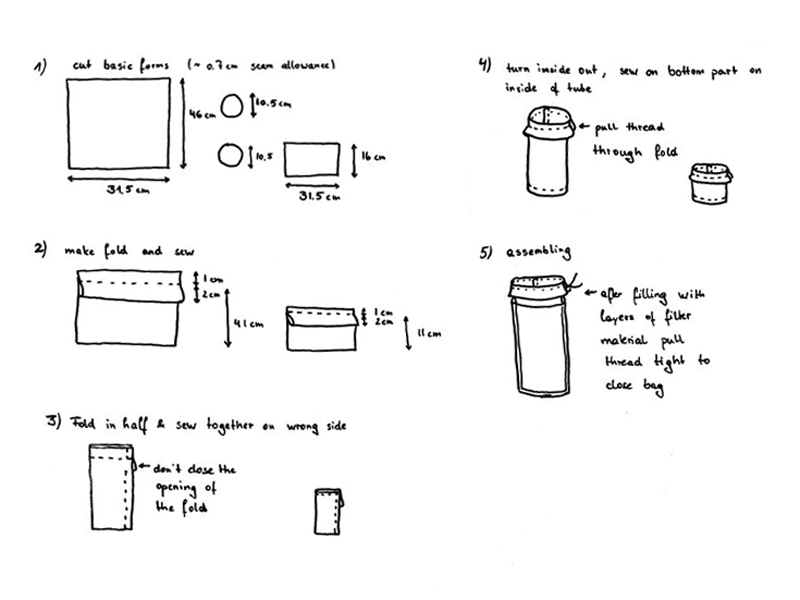(Cette version a été marquée pour être traduite) |
|||
| Ligne 2 : | Ligne 2 : | ||
|Main_Picture=Showerloop_01_02.jpg | |Main_Picture=Showerloop_01_02.jpg | ||
|Licences=Attribution-ShareAlike (CC BY-SA) | |Licences=Attribution-ShareAlike (CC BY-SA) | ||
| − | |Description=<translate>This is the first guide of [[Showerloop:_Water_filtration_and_purification_system|Showerloop]], a real-time filtration, purification & recycling system for shower water.</translate> | + | |Description=<translate><!--T:1--> This is the first guide of [[Showerloop:_Water_filtration_and_purification_system|Showerloop]], a real-time filtration, purification & recycling system for shower water.</translate> |
|Area=Energy, Science and Biology | |Area=Energy, Science and Biology | ||
|Type=Creation | |Type=Creation | ||
| Ligne 15 : | Ligne 15 : | ||
}} | }} | ||
{{ {{tntn|Introduction}} | {{ {{tntn|Introduction}} | ||
| − | |Introduction=<translate>Showers are great, but pouring hot and almost drinkable water down the drain is not. Besides the obvious costs to the environment and your bills, there is also a conscious on unconscious psychological cost any time you create waste. To solve this problem we created Showerloop. It's a shower that collects, cleans and reuses the water in real time while you are showering. So now you can shower for as long as you like without wasting precious resources.</translate> | + | |Introduction=<translate><!--T:2--> Showers are great, but pouring hot and almost drinkable water down the drain is not. Besides the obvious costs to the environment and your bills, there is also a conscious on unconscious psychological cost any time you create waste. To solve this problem we created Showerloop. It's a shower that collects, cleans and reuses the water in real time while you are showering. So now you can shower for as long as you like without wasting precious resources.</translate> |
}} | }} | ||
{{ {{tntn|Materials}} | {{ {{tntn|Materials}} | ||
| Ligne 23 : | Ligne 23 : | ||
{{ {{tntn|Separator}}}} | {{ {{tntn|Separator}}}} | ||
{{ {{tntn|Tuto Step}} | {{ {{tntn|Tuto Step}} | ||
| − | |Step_Title=<translate>Theory</translate> | + | |Step_Title=<translate><!--T:3--> Theory</translate> |
| − | |Step_Content=<translate>So the main components of the filter are the pump, filter housing with the sand and activated carbon filter and the uv-lamp. | + | |Step_Content=<translate><!--T:4--> |
| + | So the main components of the filter are the pump, filter housing with the sand and activated carbon filter and the uv-lamp. | ||
| + | <!--T:5--> | ||
Large particles like skin cells are trapped by a layer of compressed sand. Finer particles are adsorbed by a layer of compressed activated carbon, including some chemicals like nitrates (in sweat), sulphates (in soap), chlorine and fluorine (in tap water). Finally the UV-lamp is used to sterilize the water so that bacteria can no longer reproduce. It might not seem like a big deal since our bodies are covered in bacteria but the main concern is bacteria from your bum coming into contact with your eyes.</translate> | Large particles like skin cells are trapped by a layer of compressed sand. Finer particles are adsorbed by a layer of compressed activated carbon, including some chemicals like nitrates (in sweat), sulphates (in soap), chlorine and fluorine (in tap water). Finally the UV-lamp is used to sterilize the water so that bacteria can no longer reproduce. It might not seem like a big deal since our bodies are covered in bacteria but the main concern is bacteria from your bum coming into contact with your eyes.</translate> | ||
|Step_Picture_00=Showerloop 01 01.jpg | |Step_Picture_00=Showerloop 01 01.jpg | ||
}} | }} | ||
{{ {{tntn|Tuto Step}} | {{ {{tntn|Tuto Step}} | ||
| − | |Step_Title=<translate>Assembly overview</translate> | + | |Step_Title=<translate><!--T:6--> Assembly overview</translate> |
| − | |Step_Content=<translate>I hope this isn't too confusing but there are many ways to setup the filters depending on your needs. Here are two different ways of setting it up. The first one is the most simple build (simply called 'Simple'). | + | |Step_Content=<translate><!--T:7--> |
| + | I hope this isn't too confusing but there are many ways to setup the filters depending on your needs. Here are two different ways of setting it up. The first one is the most simple build (simply called 'Simple'). | ||
| + | <!--T:8--> | ||
The only down side is that the filters quite wide with a 20mm tube with compression disks and lids also made to fit this. | The only down side is that the filters quite wide with a 20mm tube with compression disks and lids also made to fit this. | ||
| + | <!--T:9--> | ||
For this tutorial, I'll be going through the 'Showerloop POC21' version, designed and built at the POC21 innovation camp (poc21.cc for more information) in France.</translate> | For this tutorial, I'll be going through the 'Showerloop POC21' version, designed and built at the POC21 innovation camp (poc21.cc for more information) in France.</translate> | ||
|Step_Picture_00=Showerloop_01_02.jpg | |Step_Picture_00=Showerloop_01_02.jpg | ||
| Ligne 40 : | Ligne 45 : | ||
}} | }} | ||
{{ {{tntn|Tuto Step}} | {{ {{tntn|Tuto Step}} | ||
| − | |Step_Title=<translate>Filter bag assembly</translate> | + | |Step_Title=<translate><!--T:10--> Filter bag assembly</translate> |
| − | |Step_Content=<translate>Also for this there are two options, either just cutting the circle together (and either bolting it to the compression disk or just compressing it between the filtrates sand or activated carbon) or making a filter bag out of a landscaping geotextile. | + | |Step_Content=<translate><!--T:11--> |
| + | Also for this there are two options, either just cutting the circle together (and either bolting it to the compression disk or just compressing it between the filtrates sand or activated carbon) or making a filter bag out of a landscaping geotextile. | ||
| + | <!--T:12--> | ||
The benefit of using the filter bag is that changing the material is much easier, the down side is that you can't see what's going on with the filter. Personally I like to see the water flowing through the filter. | The benefit of using the filter bag is that changing the material is much easier, the down side is that you can't see what's going on with the filter. Personally I like to see the water flowing through the filter. | ||
| + | <!--T:13--> | ||
Thanks to Katharina for actually making the bags and these simple and amazing instructions.</translate> | Thanks to Katharina for actually making the bags and these simple and amazing instructions.</translate> | ||
|Step_Picture_00=Showerloop_01_03.jpg | |Step_Picture_00=Showerloop_01_03.jpg | ||
Version du 27 juin 2018 à 15:13
Introduction
Matériaux
Outils
Étape 1 - Theory
So the main components of the filter are the pump, filter housing with the sand and activated carbon filter and the uv-lamp.
Large particles like skin cells are trapped by a layer of compressed sand. Finer particles are adsorbed by a layer of compressed activated carbon, including some chemicals like nitrates (in sweat), sulphates (in soap), chlorine and fluorine (in tap water). Finally the UV-lamp is used to sterilize the water so that bacteria can no longer reproduce. It might not seem like a big deal since our bodies are covered in bacteria but the main concern is bacteria from your bum coming into contact with your eyes.
Étape 2 - Assembly overview
I hope this isn't too confusing but there are many ways to setup the filters depending on your needs. Here are two different ways of setting it up. The first one is the most simple build (simply called 'Simple').
The only down side is that the filters quite wide with a 20mm tube with compression disks and lids also made to fit this.
For this tutorial, I'll be going through the 'Showerloop POC21' version, designed and built at the POC21 innovation camp (poc21.cc for more information) in France.
Étape 3 - Filter bag assembly
Also for this there are two options, either just cutting the circle together (and either bolting it to the compression disk or just compressing it between the filtrates sand or activated carbon) or making a filter bag out of a landscaping geotextile.
The benefit of using the filter bag is that changing the material is much easier, the down side is that you can't see what's going on with the filter. Personally I like to see the water flowing through the filter.
Thanks to Katharina for actually making the bags and these simple and amazing instructions.
Published




 Français
Français English
English Deutsch
Deutsch Español
Español Italiano
Italiano Português
Português